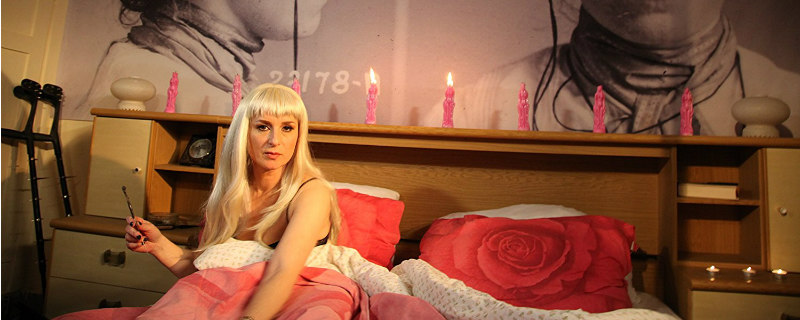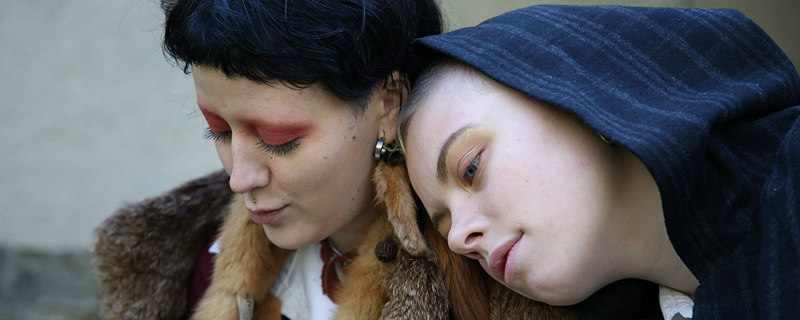
Review by Eric Hillis
Directed by: Bruce LaBruce
Starring: Susanne Sachße, Viva Ruiz, Kembra Pfahler, Caprice Crawford, Kita Updike

Canadian shock-provoc-auteur Bruce LaBruce's latest feature, The Misandrists, opens with a title card reading "1999: Somewhere in Ger(wo)many," an early indication of its skewering of the linguistic rigidness - née pedantry - of identity politics in an age where the perfectly well-intentioned can find themselves shut down by online pedant-trolls (or Canadian Prime Ministers) for daring to evoke a patriarchal phrase like 'mankind'.

LaBruce is the very definition of a cult auteur, having come up as part of the '90s New Queer Cinema movement alongside the likes of Todd Haynes and Gregg Araki, but opting to remain in the niche world of outré shock cinema rather than treading a path to (relative) mainstream acceptance like the aforementioned pair. His early films didn't so much border on pornography as climb over that border's fence and fully embrace hardcore aesthetics. By comparison, The Misandrists is positively tame, though with the occasional inserts (no pun intended) of extreme sexual imagery as viewed on video by some of its protagonists, it's not one to watch on your tablet on the morning commute.
The Misandrists is set in a lesbian commune in a remote part of the German countryside, ruled with an iron fist by Big Mother (Susanne Sachsse), whose philosophy is to train the young girls in her charge to become warriors in the battle to overthrow the patriarchy. Dressed in skimpy schoolgirl outfits, said girls engage in slo-mo pillow fights and are encouraged to pair off and indulge in lesbian love-making. Contact with males is strictly forbidden.

While cavorting in the woods, two of the girls - Hilde (Olivia Kunisch) and Isolde (Kita Updike) - stumble across Volker (Til Schindler), a wounded male communist revolutionary who spouts a stream of socialist clichés before falling unconscious. Defying the rules of her society, Isolde sneaks the young man into the barn at her commune, and begins to develop sexual feelings for a member of the gender she's been raised to despise.
LaBruce takes the bones of the plot of The Beguiled - a wounded soldier sheltered in and subsequently disrupting a female only milieu - and though it can only be a coincidence given how both movies would have been produced concurrently, he adopts the same pink font as the credits of Sofia Coppola's remake. Much of the narrative is reminiscent of 'The Worm That Turned', the extended serial incorporated into the weekly '80s TV show of British comic duo The Two Ronnies.

The trouble is, aside from the modern obsession with selecting the right terms and phrases, the hardcore feminist movement hasn't changed all that much from 40 years ago, and many of the barbs aimed by LaBruce feel quite dated. Casting a black actress as the revolutionary-within-a-revolution figure of Isolde initially suggests a critique of the gatekeeping nature of white feminism, but this doesn't seem to be a path LaBruce is interested in following.
Granted, lines like "Who could be calling at this ungoddessly hour?" and a teacher lecturing a classroom with the word 'Herstory' chalked on the blackboard may elicit a wry smile from anyone worn down by the grind and white noise of 'wokeness', but there's really only enough material here to fill a 10 minute sketch, and ultimately LaBruce's film grows as tedious as the identity obsessives he's parodying.

The Misandrists is on DVD now.

